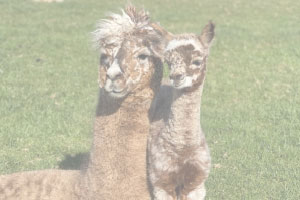British Alpacas -a growing success
Duncan Pullar, CEO BAS
The British Alpaca Society is passionate about all things alpaca, and within the UK helps to ensure the wellbeing of the animals its members love, as well as celebrating and promoting them to members and the general public, to ensure they have a bright and long-lasting future in the UK.
The alpaca in the UK is riding a wave of interest and popularity that is very encouraging for members of the British Alpaca Society. For reasons that are not always easy to understand the British media love alpacas and we have had good exposure on National TV and Radio as well as local programmes. One factor that is identifiable is the frequent appearance of alpacas on a TV programme that documents the daily lives of a Yorkshire Vet Practice. But we have had features on Breakfast TV and Judge Robert Rinder as well!!
The British Alpaca Society currently has about 2000 members with an average herd size of 20. There are a small number of larger herds, at the time of writing there are 42 herds with 50 or more breeding females.
BAS aims to support its members through providing information and advice that encourages alpaca wellbeing, alpacas as a “lifestyle” choice and alpacas for personal and business opportunities.
Wellbeing
BAS has an impressive set of resources available to members and the public that help support alpaca wellbeing. The reference material is supported by a range of training courses that start with basic husbandry and could lead all the way to qualification as a judge.
BAS introduced an “Affiliates” training programme that standardised a basic set of information into an 11-module programme that affiliates can deliver to alpaca owners, or prospective owners, for a fee paid by the delegate to the trainer. Several affiliates have taken and “run with” the opportunity and provide good training for those relatively new to alpacas.
The next tier up is administered directly by BAS in three specialist training courses that last 1, 2 or 3 days and go deeper into fleece quality and conformation.
A key activity is our welfare network that helps in cases of poor welfare and re-homing (for all sorts of reasons). Often working with the RSPCA or Local Authorities nominated BAS members provide technical support on alpaca welfare, and, using our network, find new homes for animals that need them. It is often difficult territory to negotiate but there is a core of dedicated members who do valuable, unsung work, in this area.
BAS is determined to educate its members on the benefits of biosecurity and a proactive health programme. This is particularly important in respect of bTB, which continues to be a problem in the UK cattle population, and also affects UK alpaca herds. Contrary to some reports the UK alpaca herd is not widely affected by bTB, but cases do crop up, and BAS encourages testing of all alpacas sold. The Society recommends testing sale alpacas so that bTB can be proactively managed, hopefully by avoiding it in the first place. We have regular meetings with our Government Animal Health representatives to try and improve the policy development and implementation of disease control.
Lifestyle
The UK has a vibrant showing scene with 16 Halter and 5 fleece shows in 2019. Only fleece shows in 2020 thanks to Covid! The biggest show is the National held in March over 3 days, which for the last few years has been held in Telford and attracts over 600 entries for the halter show alongside a fleece show, a fibre zone, and a trade stand village. Some of the regional shows are part of a county show scene and other are “stand alone.” Across all shows there have been over 3,000 entries per year for the past 5 years.
A relatively new phenomenon, and one that is still growing is the trekking and petting scene. Alpacas are popular attractions at farm parks and have been for quite a while. The expansion area is trekking where members of the public take an alpaca for a walk on a lead-rope for anything from 20 minutes to a couple of hours. Some trekkers stay on their own land and others venture further afield on public footpaths and bridle ways.
Alpacas have also joined in the “yoga-with-animals-scene.” Several venues offer the chance to do yoga in the company of alpacas both inside and outside.
We have several mills that process alpaca fibre and between them they can process a single fleece or a bulk order. Many herds have their own outlets for alpaca garments and there are a handful of professional clothes sellers who are doing well. The sales of alpaca pillows and duvets is also a growing market. British Alpaca is supported by the Fibre Marque which assures buyers of the provenance.
Support
BAS has a good on-line registry which allows members to register cria, record transfers, make show entries and pay for all the above! The registry is currently showing 43,000 live alpacas on the books with just over 4,000 new registrations per year. The registry has a new app linked to it to allow members easy access to their data from their phone.
Communication between members is a high priority for BAS. There is a weekly e-newsletter which keeps members up to date with relevant information, a recently re-vamped website provides a great resource of information alongside a bi-monthly magazine and a Facebook chat room for members.
- Log in to post comments

